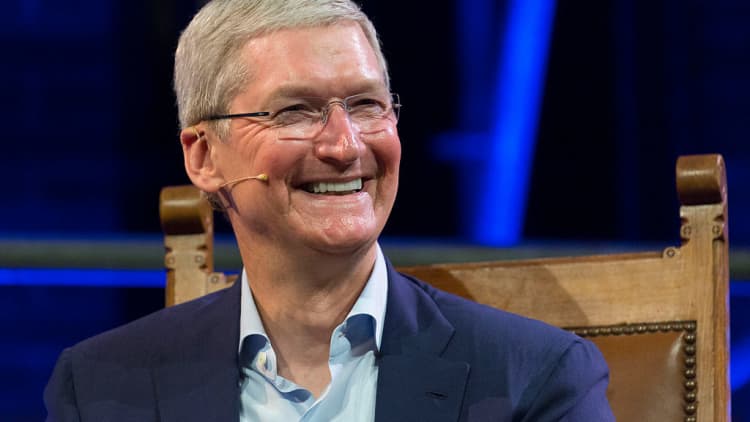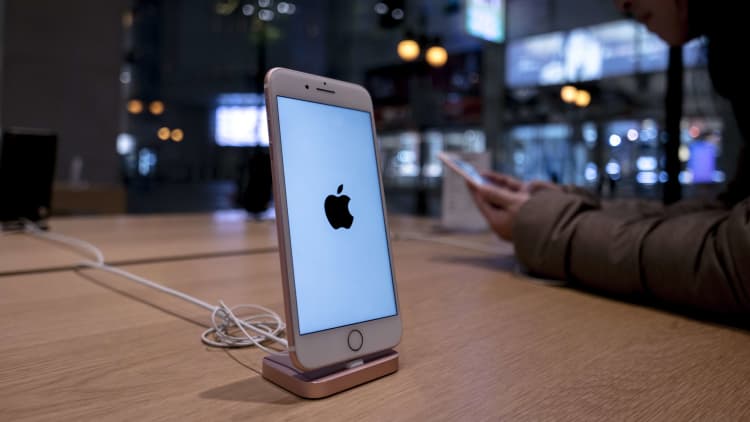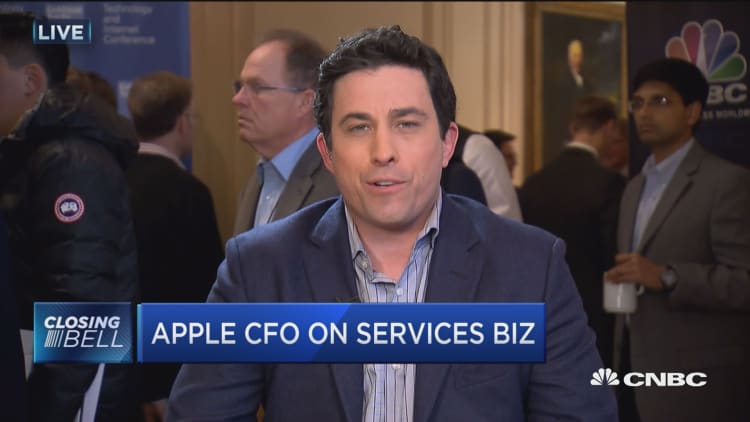
Apple's steady increase in research and development spending has stoked speculation that it working on cars, goggles and more.
But company's financial guru attributes the spending to something of a much smaller scale: chips. It may not sound like it, but that research is "very strategic and important" for Apple to differentiate itself from the rest of the industry, chief financial officer Luca Maestri said on Tuesday at the Goldman Sachs Technology and Internet Conference in San Francisco.
"Today, we do much more in-house development of some fundamental technologies than we used to do a few years ago, when we did more of that in the supplier base — the work we do around processors or sensors," Maestri said. "It's very important for us because we can push the envelope on innovation, we can better control timing, cost, quality. We look at that as a great strategic investment."
Apple spent more than $10 billion on research and development in 2016, up from $8.07 billion in 2015 and $6.04 billion in 2014. That means that Apple spent 5 percent of its total net sales on research last year, up from 3 percent in the prior two years.

Apple has credited special camera sensors in the iPhone 7 Plus, and special chips in its AirPods, for their superior performance. These new products come amid tenuous relationships with chip supplier Qualcomm, who is battling Apple over the royalty costs of chips.
On Tuesday, Maestri also noted that Apple's "product portfolio is much larger than it used to be," and that keeping all these products moving along in parallel adds up, especially with smaller markets, like the Apple Watch.
While Maestri said Apple drops a "meaningful" amount of cash on products that do not generate revenue today, these products are not very large "in the total scheme of things," Maestri said.
"They add up over time, and hopefully, those are good bets that we are making for the future of the company," Maestri said.
Maestri also reiterated Apple's support for a lower tax on repatriation of funds kept overseas, which is under consideration by the Trump administration and Republican Congress, and opposition to Trump's proposal of a border tax, saying "it would burden the consumer and the dollar would appreciate versus where it is today, which is already too strong."
The conference draws tech's heavy hitters, such as Oracle CEO Mark Hurd, to discuss the future of their companies. Maestri's comments come after Apple reported better-than-expected earnings in January, helped by a more expensive iPhone and new MacBooks.



